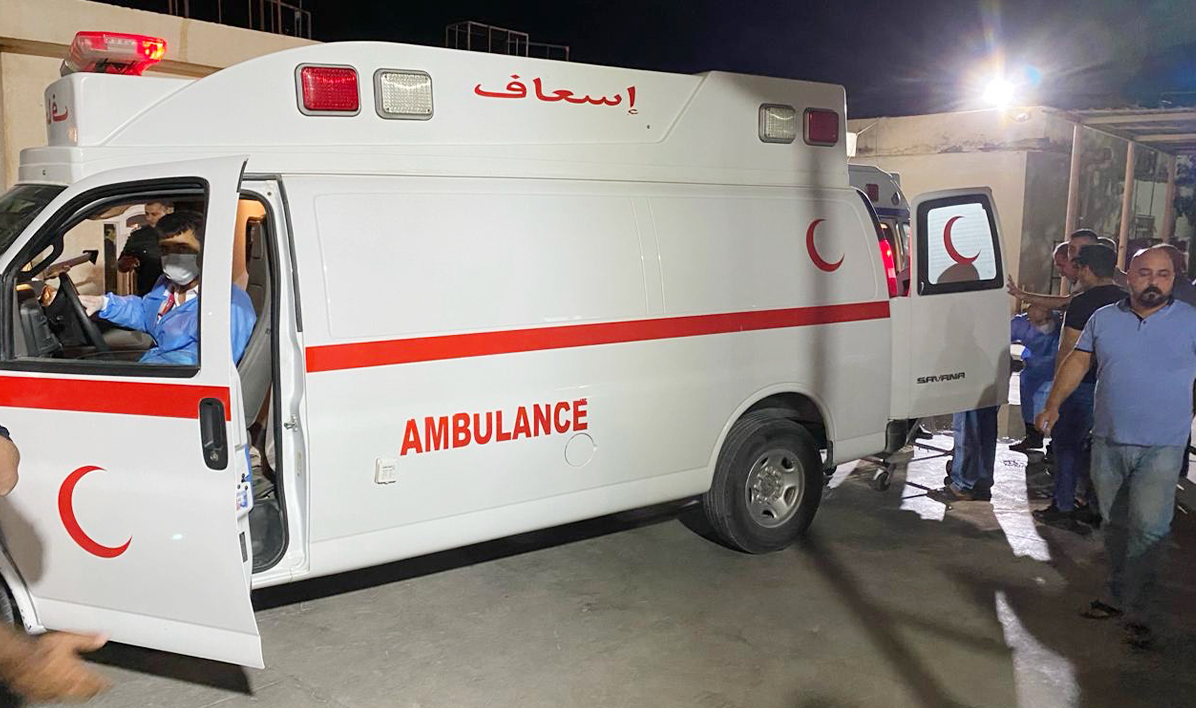Khanaqin health efforts in Diyala province have been intensified to reopen the forensic department and the effort has good results so that every month twenty bodies are no longer sent to Baquba.
The forensic department of Khanaqin district has been closed since early 2022, forcing the bodies of those who die in suspicious and sensitive incidents, murders, burns, and suicides, as well as traffic accidents to be taken to Baquba – the center of Diyala province, 113 km from Khanaqin.
An administrative source in Khanaqin General Hospital, who declined to be named, told KirkukNow, “According to medical guidelines, the bodies of all those who died in murder, suicide, self-immolation, traffic accidents, and suspicious incidents should be examined, otherwise, the body will not be handed over to his relatives.”
"All women under the age of 40 and men under the age of 50, if they did not die of a chronic illness, should be forensically examined," the source added.
"We have to send them to Baquba because the Khanaqin forensic medicine has been closed for more than two years," he said.
Earlier, Shwan Shakir, director of Khanaqin General Hospital, told KirkukNow that the Ministry of Health has closed the medical department because the salaries of doctors and staff in the department are high.
"It is in Baquba and has only one doctor and few employees, which has returned a lot of expenses to the ministry.”
Iraq’s healthcare system which was once one of the most advanced in the region now is in serious crisis. There’s a shortage of buildings, drugs, and the medical staff to administer it. Over the past three decades, the country has been ravaged by the Iraqi-Iran war, Saddam Hussein’s invasion of Kuwait, the ousting of Saddam's regime followed by sectarian violence, the war against al-Qaeda, and the rise of Islamic State in Iraq and Syria ISIS.
The political chaos after 2003, pushed an estimated 15,000 out of 52,000 registered Iraqi doctors to leave the country. The young student doctors primarily seek training and life abroad rather than permanent state employment.

Khanaqin District, home to 90,000 Kurds, Arabs and Turkmens, Sunnis, and Shias, is part of Diyala province and is one of the disputed territories that extends from Khanaqin, on the border with Iran, to the northern oil-rich city of Kirkuk up to Shingal (Sinjar), home to the Ezidi community, in Mosul, in the far west, on Iraq-Syria borders.
Article 140 of the Iraqi constitution stipulates normalization, a population census, and a referendum on the status of the territories, yet it has not materialized up the preset, leaving the area in a security gap, missing basic public services.
In general, the salaries of those working in the forensic department are much higher because of the risks they face.
According to KirkukNow in the emergency department of Khanaqin, normally, the least number of bodies sent to Baquba is two to three bodies a week, if there are no traffic accidents that week.
"If the body is not autopsied, the death certificate will not be issued, which will be a problem for the relatives," a medical source in the emergency room of Khanaqin General Hospital said.
"We have written to the Diyala health department to reopen the department. A committee has been formed for this purpose and the procedures for opening the department have been completed," the administrative source said.
In 2019, the Iraqi government allocated just 2.5% of the state’s $106.5 billion budget to its health ministry, while security forces received 18% and the oil ministry 13.5%. The same was true for 2014.
Over the past decade, data from the World Health Organization WHO shows that Iraq’s central government has consistently spent far less per capita on healthcare than its much poorer neighbors - $161 per citizen each year on average, compared to Jordan’s $304 and Lebanon’s $649, a report by Reuters found.






